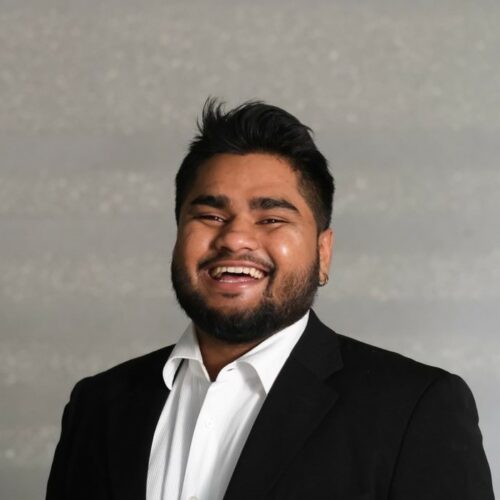Megh Rathod

Megh Rathod
2023 3MT Finalist
Biomedical Engineering
Tell us a bit about yourself.
My name is Megh Rathod, and I’m a a second-year PhD candidate in Biomedical Engineering at the University of Toronto and Ted Rogers Center for Heart Research. I completed my undergraduate degree at McMaster University in the Honours Integrated Science program with an Interdisciplinary Minor in Community Engagement.
I am constantly fascinated by the human body, and how we can leverage physical interactions to gain new insights into how our bodies are doing. I really enjoy exploring this within the creative problem-solving domain of engineering, which led to my wanting to learn about advancing medicine through device innovation. It is a great feeling to explore a concept, create a prototype, and then test it out. In this journey, I am grateful for the support from my supervisors, Dr. Daniel Franklin and Dr. Heather Ross. Outside of the lab, I enjoy eating, exploring the city, and watching stand-up comedy.
What are you researching?
My research focuses on exploring how we can use light to see how the heart is doing. Specifically, my work explores ways to improve the accuracy and accessibility of wearable, non-invasive, optical technology. Unfortunately, existing optical technology is not “one size fits all”, and often fails to account for forms of interpersonal variability, such as melanin levels. These issues have resulted in inaccurate readings and inequities in care.
A key aspect of my work is to develop a non-invasive way to precisely measure cardiovascular metrics – regardless of skin colour. By studying light and leveraging advanced electronics, I aim to develop and validate new devices that can advance our knowledge and ensure it is done equitably. The ultimate goal of my research is to advance the development of medical devices for diverse populations in Canada and beyond.
What impact do you hope to have on your field and / or your community?
Broadly speaking, I would like to contribute to the advancement of medical technology. Recognizing the large global efforts that have driven the field forward, both in the present and in the past, I hope I can at least make a dent in addressing some key issues. I aim to champion a multidisciplinary lens to carve out niche solutions with real-world applicability. In doing so, I would like to place a focus on inventing technology that can be truly used by all around the world and not just the privileged.
The impact I would like to have also includes bringing community members into the scientific process by: 1) Educating and co-creating with those outside of academia, and 2) Engaging in science outreach with youth to demonstrate that we are all scientists in some capacity, and that they too can pursue science if given the chance to foster that aptitude.
How has the 3MT helped you with your professional development?
In my day-to-day, I’m in the lab talking about the work with those already familiar with the field. But this experience has challenged me to reconsider how I tell the story to others. It has also reinforced my understanding that the science, however great, may not have the desired impact if not communicated well.
Thanks to the 3MT, I’m also rethinking how I understand my field. During my PhD qualification exam, one of my committee members asked me to explain a very complicated concept as if I was speaking to my grandmother. I fumbled; it was evident that I needed to improve. The unique constraints of the 3MT prioritize brevity while maintaining impact. I hope to continue to improve this skill. I recognize that the ‘3MT’ experience in real-life may come in various settings, and that those three minutes may lead to future opportunities that last much longer.